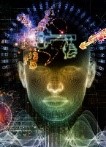 The image we have of job losses caused by technological advances is anchored in the popular cliché of the Luddite revolt in the weaving industry. So it is not surprising that most of our thinking about the impact of artificial intelligence systems, including robots, seems to focus on the idea of job displacement, primarily in the manufacturing and trade sectors.
The image we have of job losses caused by technological advances is anchored in the popular cliché of the Luddite revolt in the weaving industry. So it is not surprising that most of our thinking about the impact of artificial intelligence systems, including robots, seems to focus on the idea of job displacement, primarily in the manufacturing and trade sectors.
For the most part, the ‘professions’ are seen as largely immune from such disruptions and dislocations and the idea that they might be disrupted is often dismissed because it is argued that the professions are dependent on highly personal, highly individual demands.
Yet almost all professions, including education, have been significantly affected as a result of the explosion of the knowledge economy even prior to the rise of the Internet and artificial intelligence.
As the accumulation of specialised knowledge has accelerated, the world has seen an increase in specialisation and sub-specialisation as it has become increasingly difficult for individuals to master one area, much less track peripheral, interdisciplinary subjects.
This proliferation of knowledge, the ability to sort, analyse and even transmit constructed materials, is exactly what artificial intelligence can address.
‘Professionals’ in post-secondary education, like other professionals, should be consider as providers and deliverers of knowledge, with teaching as the primary value proposition, distinguished from research. As artificial intelligence’s capabilities have expanded, it has been able to gather critical resources and assemble them into a well-focused package of knowledge for delivery direct to individual learners.
The combination of access to and use of ‘Big Data’, coupled with the ability to target specific areas of knowledge, allows for customisation at the speed and level required in the modern world.
Recent studies appear to show that the demand for individuals to be able to control their education path through selectively accessing knowledge is growing, even in semi-automated systems such as Khan Academy and massive open online courses, or MOOCs.
In fact, in one year there have been more registrations for Harvard MOOCs than for all previous courses at the institution. Khan Academy, YouTube and other educational sites have multiple courses, quizzes and similar vehicles for knowledge acquisition.
Unlike the case of technology within the manufacturing sector that led to significant job loss and-or displacement, the impact of artificial intelligence within the professional service sector may prove to be substantially different and uneven.
The form and function of the university is changing rather than being replaced by artificial intelligence, which in turn alters the professional practice of providing knowledge.
This changes the balance of skill sets needed by faculty members in the same way as it changes those needed by individuals outside the academy. There is a growing understanding that outside the walls of the Ivory Tower professionals will need more higher-level credentials.
As the world becomes more Internet-connected, we will see the rapid deployment of custom knowledge delivery systems with a global impact on the work of academic professionals. This impact has yet to be understood by various political entities whose focus has been on cloning a model that is in the process of change. In other words, artificial intelligence’s ability to deliver multilingual, multicultural skills will change post-secondary education globally.
Unlike the technical revolution that gave rise to job-loss in the trade and crafts world, the evolution of the Internet and artificial intelligence will have an impact on higher education institutions, bringing changes in functions at all levels, from knowledge delivery to research/development.
http://www.universityworldnews.com/article.php?story=20160519001943581

